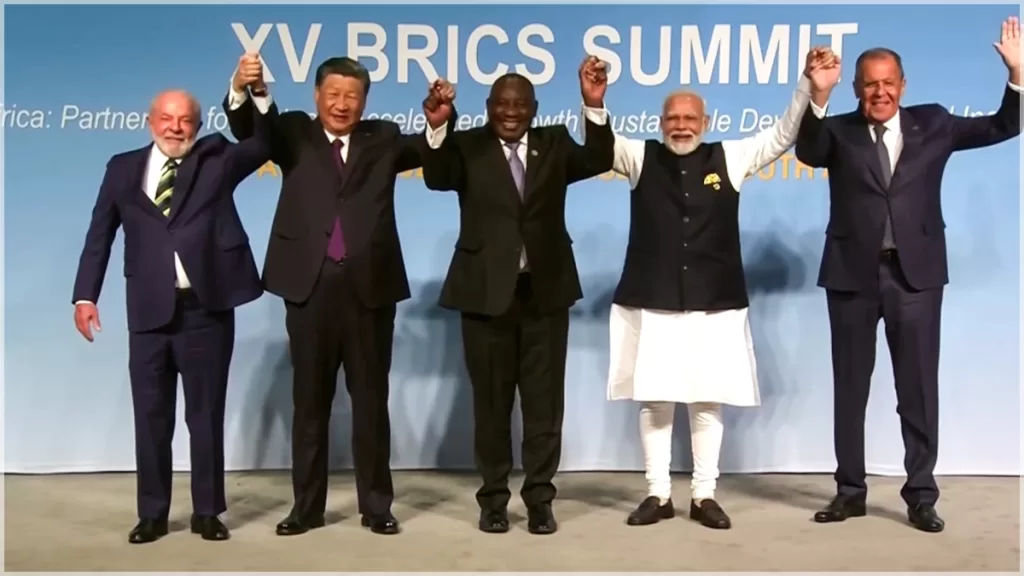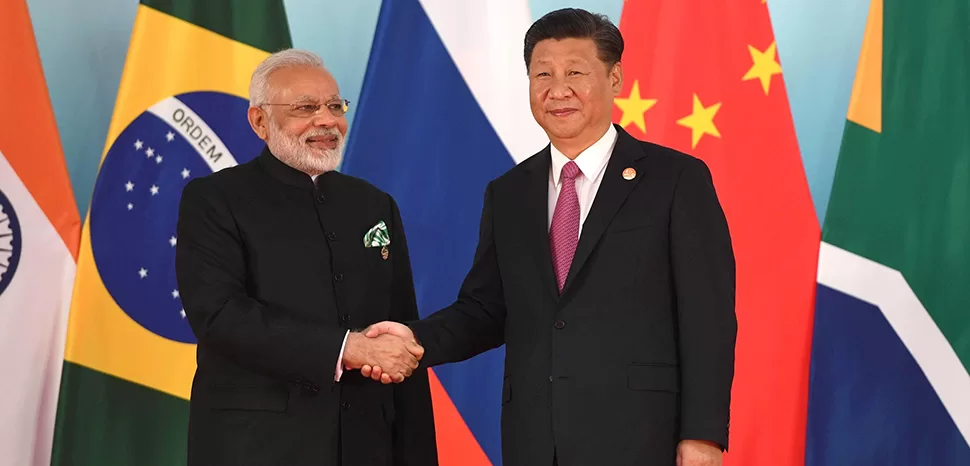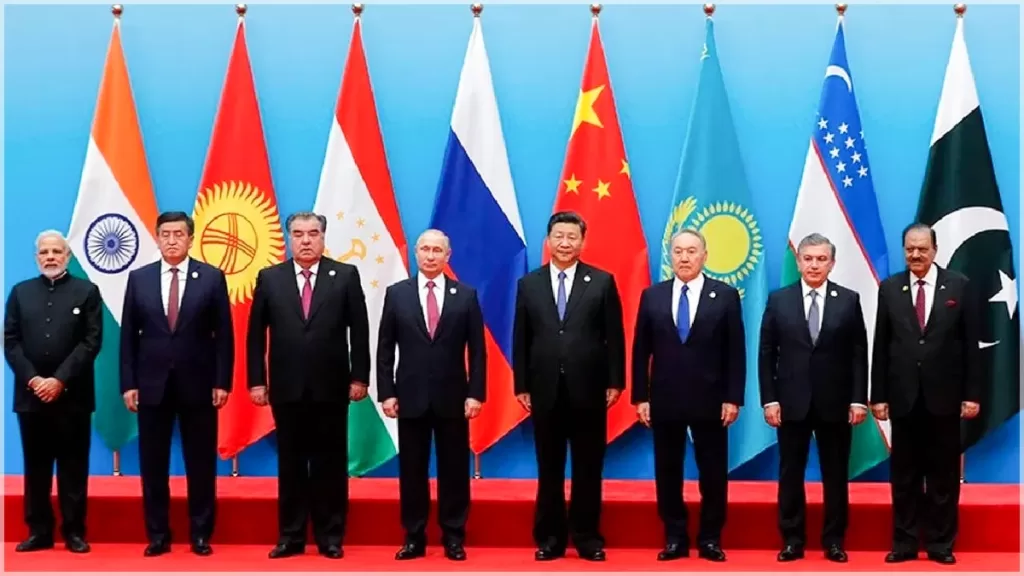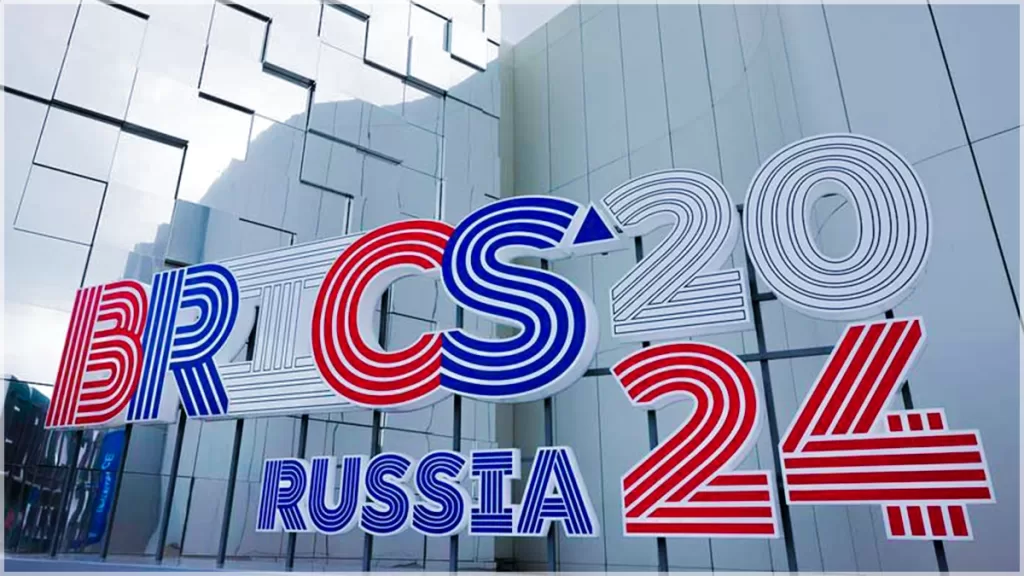The recent BRICS Summit in Russia has generated global attention. This summit held significant implications for India and the global order, especially given Western countries’ sanctions on Russia. With 36 nations attending, the BRICS Summit marks a pivotal point in shaping international relations, influencing economic trends, and driving dialogues among emerging economies. Let’s explores the major takeaways from the BRICS Summit, its impact on global geopolitics, and what it means for India moving forward.
Table of Contents
1. Russia Hosts BRICS Summit Amid Western Isolation Narratives

- Despite facing sanctions from the West, Russia successfully hosted the BRICS Summit with representatives from 36 countries in attendance. Western narratives often depict Russia as an isolated country; however, the summit’s turnout challenges that portrayal.
- The event showcased Russia’s influence and reinforced its alliances, specifically among non-Western nations. This response has spotlighted Russia’s ability to attract international participation despite efforts to isolate it.
Key Point: Russia’s hosting of this summit indicates that “isolation” might be more of a Western perception than a reality. Russia remains engaged with a significant part of the global community.
2. Growing Interest in BRICS Membership

- One of the summit’s standout points was the expansion interest in BRICS. Over 30 countries applied for BRICS membership this year, demonstrating the bloc’s growing appeal as an alternative to Western-led alliances.
- Countries including Iran, UAE, Saudi Arabia, Egypt, and Ethiopia were added to the BRICS group, expanding its influence. BRICS, now comprising almost 45% of the global population and nearly 30% of global GDP, is positioning itself as a major economic and political force.
Key Point: The rising membership interest in BRICS reflects a shift in global power balance, challenging Western hegemony by creating an alternative alliance structure.
3. India’s Gains from the BRICS Summit

- Strengthening India-China Relations: The BRICS summit was a platform for the first formal meeting between Indian and Chinese leaders in five years. Despite recent tensions, both sides agreed to promote “mutual trust, mutual respect, and mutual sensitivity.” They also committed to disengagement along the Line of Actual Control (LAC) and resumed discussions on security cooperation.
- Message to the West: India’s engagement with BRICS sends a message that the world is moving toward a multipolar structure, where the U.S. may no longer hold a singular influence. India’s participation in BRICS allows it to build a strategic alternative, ensuring it remains flexible in international relations.
- Trade Opportunities: With the inclusion of countries like Saudi Arabia and UAE in BRICS, India has new avenues for enhanced trade relations, benefiting sectors like energy, defense, and technology.
Key Point: The summit presented India with opportunities to reinforce its international standing and secure more stable diplomatic ties with major global players like China and Russia.
4. Implications for the U.S. Dollar and De-dollarization Efforts

- One of the most notable discussions during the summit was the push towards reducing reliance on the U.S. dollar in international trade. BRICS nations explored the possibility of a new trade currency to replace the dollar, lessening the dollar’s monopoly on global markets.
- Russia, still under sanctions, is particularly interested in an alternative to the dollar. The dollar’s weaponization during economic sanctions has raised concerns worldwide, with many countries seeking financial systems independent of U.S. influence.
Key Point: The move towards “de-dollarization” is a strategic shift aiming to create economic autonomy and lessen the impact of U.S.-imposed sanctions. This push signals a growing desire among BRICS countries for financial independence from Western financial structures.
5. Western Media and Political Reaction to the BRICS Summit
- Western media outlets have cast doubt on BRICS Summit’s relevance and effectiveness, with some even labeling it a “so-called summit.” Publications like The New York Times and Washington Post highlighted the lack of unity and implied the summit was a “mere gathering” rather than a significant geopolitical event.
- However, despite such criticism, it’s evident that BRICS is attracting attention, interest, and investment from several major economies. This critical reception could also signal Western concern over the expanding influence of BRICS on the global stage.
Key Point: Western media’s critique underscores the tension between BRICS and the traditional Western-dominated order, as BRICS’s growing role poses a potential challenge to that structure.
6. Pakistan’s Rejection and Regional Tensions
- In a diplomatic snub, Pakistan was not invited to the BRICS summit, nor has it been offered membership, despite its interest in joining. This exclusion highlights India’s influence within BRICS and signals ongoing regional friction, especially with China’s complex relationship between both India and Pakistan.
- The rejection led to backlash from Pakistani media and analysts, sparking debates about China’s loyalty to its allies. Some commentators argued that China’s choice to prioritize BRICS membership with India over Pakistan could indicate shifting regional alliances.
Key Point: Pakistan’s exclusion from BRICS underscores India’s influence within the organization and points to possible realignments in South Asia.
7. A Multi-Polar World Order and the Role of BRICS
- The BRICS Summit promotes a multi-polar world order by offering an alternative to Western alliances like NATO. Through BRICS, emerging economies can assert their independence from Western influence and collectively tackle challenges, such as economic dominance and global security issues.
- Turkey, a NATO member, has shown interest in joining BRICS due to frustrations with European Union membership rejections. This interest highlights BRICS as a viable alternative for countries that feel alienated or underserved by Western institutions.
Key Point: BRICS stands as a testament to the evolving world order, providing a platform for countries seeking non-Western alliances and establishing a counterbalance to traditional Western influence.
8. The Long-Term Significance of the BRICS Alliance

- Economic Collaboration: BRICS, already holding a significant share of the global GDP, continues to attract economically growing nations. Countries with aspirations to escape Western economic pressures see BRICS as a strategic economic partner.
- Security and Diplomatic Alliances: As demonstrated by the India-China rapprochement, BRICS encourages members to resolve conflicts diplomatically. This summit suggests that BRICS could play a larger role in resolving regional disputes.
- Technological and Military Collaboration: BRICS countries have a history of technological partnerships, and recent agreements indicate that BRICS may push for greater technological independence from the West, including initiatives to protect cyber sovereignty and collaborate on military technology.
Key Point: BRICS’s long-term impact could be substantial, positioning it as an alliance with both economic and strategic influence in an increasingly multipolar world.
The Conclusion
The BRICS Summit in Russia not only solidified the alliance’s relevance but also revealed the desire among emerging economies for an alternative world order. With new memberships, strategic initiatives, and steps towards financial independence from the dollar, BRICS represents a realignment in global power. For India, this summit proved beneficial in strengthening alliances, reinforcing its international influence, and opening doors to new economic opportunities. The shift towards a multipolar world driven by BRICS could reshape global geopolitics, placing emerging economies like India in a stronger, more autonomous position on the world stage.
Read also: Justin Trudeau’s Khalistan Obsession Sparks Devastating Indian Retaliation: Diplomat Expelled


